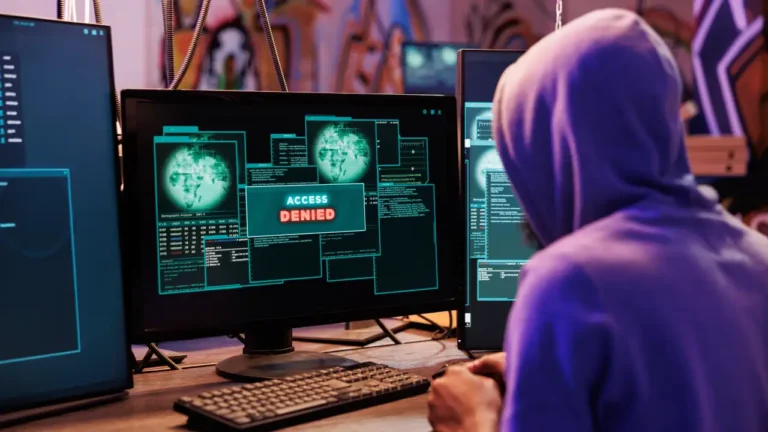Ever wondered how Artificial Intelligence (AI) is transforming our everyday lives? It’s not just sci-fi anymore, but a reality rapidly spreading into every corner of our world. Believe it or not, AI is already making your life smarter and easier than ever before! It’s not just technology; it’s a companion with the ability to learn, understand, and solve problems.
What is AI and How Does it Work?
Simply put, Artificial Intelligence is about giving machines the ability to “think” and “learn” just like humans do. It heavily relies on data. AI systems analyse massive amounts of data (like images, voices, text), identify patterns within them, and then make predictions or decisions based on those patterns. All this happens through complex algorithms and techniques like Machine Learning.
For instance, when you watch a movie on Netflix, AI learns from your viewing history and suggests other similar movies you might enjoy.
From Your Smartphone to Your Home: The Reign of AI
Your smartphone is packed with AI. Facial Recognition that unlocks your phone, Voice Assistants like Google Assistant or Siri, and even suggesting apps you might like or adjusting camera settings by recognising scenes – these are all AI’s magic tricks.
But it’s not just limited to your phone. Smart home devices like smart speakers (e.g., Amazon Echo or Google Home) and smart thermostats (e.g., Nest) also use AI to make your life more comfortable. They learn your habits, understand your music preferences, and even automatically adjust the temperature to save energy. Imagine your AC turning on before you even reach home!
AI’s Revolution in Education and Healthcare
In the field of education, AI is providing students with personalised learning experiences. It can identify where students are struggling, which subjects need more attention, and then provide them with content and exercises accordingly. It also helps teachers monitor student progress and analyse their performance, making teaching even more effective.
Meanwhile, in healthcare, AI is helping doctors diagnose diseases quickly and accurately. AI-powered tools can analyse complex medical images (like X-rays, MRI, CT scans) to identify early signs of cancer or other diseases that might be missed by the human eye. It’s also accelerating the discovery and development of new drugs, helping researchers analyse billions of compounds.

AI’s Impact on the World of Work and New Opportunities
Will AI take our jobs? This is a big question, but the truth is that AI is transforming the way we work, not completely eliminating it. AI can automate repetitive, monotonous, and data-intensive tasks, giving humans the opportunity to focus on more creative, strategic, and problem-solving work.
- Customer Service: Chatbots can answer customer queries 24/7, allowing human agents to focus on complex issues.
- Manufacturing: Robots and AI-powered machines make production faster and more efficient.
- Data Analysis: Businesses can use AI to derive valuable insights from vast datasets, leading to better business decisions.
- Creative Fields: AI can help in creating music, designing artwork, and even writing articles, providing creators with new ideas.
This transformation is also creating new AI-related jobs, such as AI developers, data scientists, AI ethics specialists, and AI trainers. We will need to learn new skills to work alongside AI, which will boost our productivity.
AI’s Future in Transportation and Cities
Self-Driving Cars are one of the most exciting and highly anticipated applications of AI. AI analyses data from sensors and cameras to identify obstacles, other vehicles, and pedestrians on the road, navigating safely. It has the potential to reduce accidents and make traffic more efficient.
Furthermore, in Smart Cities, AI is being used for traffic management, optimising energy consumption, enhancing public safety, and improving waste management. AI-powered cameras and sensors make cities ‘smart’, leading to a better quality of life for residents.
AI’s Challenges and Ethical Considerations
Like any new and powerful technology, AI also has its challenges.
- Privacy: AI systems collect large amounts of personal data, raising concerns about data security and privacy.
- Ethical Issues: AI is programmed to make decisions, and these decisions can have biases if the training data is biased. Ensuring AI is fair and just is crucial.
- Impact on Employment: While AI creates new opportunities, concerns about job displacement in some sectors persist.
- Accountability: If an AI system makes a mistake, who will be accountable?
Developing legal frameworks, regulatory bodies, and ethical guidelines is crucial to address these challenges.
AI’s Bright Future and Our Role
The future of AI is bright and full of endless possibilities. It will help us find solutions to problems we can’t even imagine today – whether it’s fighting climate change, discovering new energy sources, or solving complex scientific mysteries.
AI is not just a technology; it’s a powerful tool that can extend human intelligence. As it evolves, it will reshape our world in ways we never thought possible. We must be ready to understand AI, adapt to it, and utilise it for human welfare. Are you ready for this exciting transformation?









